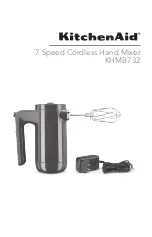
14
Names of Things and What They Do
This section is used for controlling the switching, P in P, key composite,
and other functions for the SD video.
1.
POSITION Joystick (SD) ................................................ (p. 40)
This adjusts the positioning of the small screen when the P in P effect is
used in the SD section.
The POSITION joystick (SD) can be used only when the LOCK button to
the right of the joystick is pressed to release the lock.
2.
LOCK Button (SD) .......................................................... (p. 40)
When the LOCK button (SD) is lit, the P in P position cannot be changed
with the POSITION joystick (SD) to the left of the button.
Pressing the LOCK button (SD) so its light is turned off enables operation
with the POSITION joystick (SD).
3.
P in P PATTERN Buttons (SD) 1–5 ............................... (p. 39)
Pressing the P in P PATTERN 1–5 buttons (SD) applies the P in P effect in
the SD section.
When the P in P effect is applied, the selected P in P PATTERN button
(SD) lights up.
4.
SIZE Knob (SD) ............................................................... (p. 40)
This adjusts the size of the small screen when the P in P effect is used in
the SD section.
5.
KEY LEVEL Knob (SD) ...................................................(p. 41)
This adjusts the key level when key composite effects are used in the SD
section.
6.
KEY LEVEL Display (SD) ................................................(p. 41)
This indicates the value of the key level set with the (5.) KEY LEVEL knob
(SD).
7.
KEY ON Button (SD) ....................................................... (p. 41)
Pressing the KEY ON Button (SD) causes the key composite effect to be
applied in the SD section.
8.
TIME Display (SD) ........................................................... (p. 37)
This indicates the transition time used to switch between the A-BUS and
B-BUS when the (14.) AUTO button (SD) is pressed. The time is indicated
in seconds.
9.
TIME Knob (SD) ...............................................................(p. 37)
This sets the transition time used to switch between the A-BUS and B-
BUS when the (14.) AUTO button (SD) is pressed. The set time is
indicated in the TIME display. The time can be set to any value from 0.0
to 4.0.
10.
A-BUS Channel Buttons (SD) 1–4 ................................. (p. 38)
These buttons are used to select the video signals to be input to the
A-BUS, from the video input to the SD IN connectors 1–4.
*
The colors in which buttons light can be changed in “Input Sw LED
Color” under “13. System” in the V-440HD menu. For more on menu
operations, refer to “Menu Operations” (p. 25).
11.
B-BUS Channel Buttons (SD) 1–4 ................................. (p. 38)
These buttons are used to select the video signals to be input to the
B-BUS, from the video input to the SD IN connectors 1–4.
*
The colors in which buttons light can be changed in “Input Sw LED
Color” under “13. System” in the V-440HD menu. For more on menu
operations, refer to “Menu Operations” (p. 25).
12.
TRANSITION Indicators (SD) .........................................(p. 37)
These indicate the position of the video fader.
When the AUTO button (SD) is in use, these indicate the ratio of video
being switched in the SD section. The portion of A-BUS video in the mix
increases as the position of the indicator that lights within the
TRANSITION indicators (SD) gets closer to the A-BUS, while the relative
portion of B-BUS video decreases correspondingly.
SD Section
Button
Sub-Screen Position (Factory Setting)
1
Upper left
2
Upper right
3
Lower right
4
Lower left
5
Center
1
2
10
12
13
14 15
11
3 4
5 6 7
8
9
Button
V-440HD Status
Lit (Yellow) *
Channel is selected
Lit (Green) *
Channel is selected (not displayed)
Off
Channel selection is cancelled
Flashing (Yellow or Green)
P in P or key composite is in use
Button
V-440HD Status
Lit (Yellow) *
Channel is selected
Lit (Green) *
Channel is selected (not displayed)
Off
Channel selection is cancelled
Flashing (Yellow or Green)
P in P or key composite is in use















































